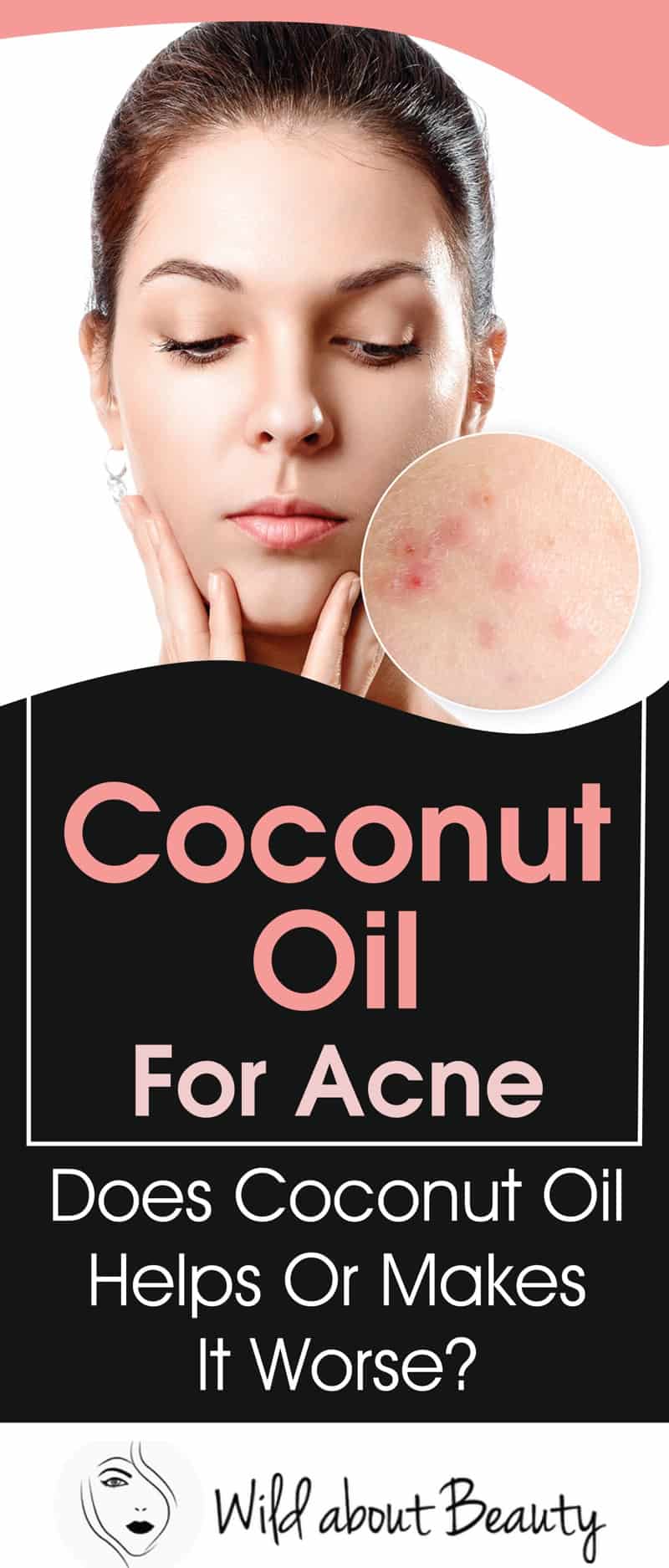Acne is a prevalent skin condition that affects a majority of individuals at some point in their lives. With a staggering 80% of people experiencing acne, it comes as no surprise that various treatments and remedies have emerged to tackle this widespread concern. In recent years, natural alternatives have gained popularity, and among them, coconut oil has piqued interest as a potential solution for acne.
Coconut oil boasts numerous benefits for general health and well-being, leading many to believe it can alleviate and treat acne symptoms. One can reap these advantages through topical application or consumption. However, opinions vary on the effectiveness of coconut oil for acne, leaving some to question if it truly aids in addressing the problem, or if it worsens the situation.
Chapter Overview
What Causes Acne?
Acne occurs when bacteria, sebum, and dead skin cells accumulate in the pores on our skin. Our pores are tiny holes connected to the sebaceous glands that produce sebum, an oily substance.
Factors that contribute to acne development:
- Sebaceous gland overproduction: In some cases, these glands produce excessive sebum, which leads to clogged pores.
- Propionibacterium acnes: This bacteria can grow and breed within clogged pores, triggering white blood cells’ attack, resulting in skin inflammation.
- Genetics: Our genetic makeup can predispose us to acne breakouts.
- Hormonal changes: Fluctuations in hormones can impact sebum production and inflammation.
- Stress: The body’s response to stress may exacerbate acne symptoms.
- Diet: Consuming certain foods can influence skin health and potentially contribute to acne.
These factors combined can manifest in different forms of acne, such as pimples, whiteheads, and blackheads. The severity of acne varies among individuals, with some experiencing milder breakouts and others suffering from more aggravated conditions.
How Coconut Oil Can Help with Acne?

Coconut Oil Kills Bacteria
Coconut oil contains antibacterial and antifungal properties due to its rich content of medium-chain fatty acids, which make it a potent antimicrobial remedy. This means coconut oil can eliminate the culprits behind acne breakouts when applied directly to the skin.
Over 50% of the fatty acids in coconut oil are lauric acid, recognized for its ability to destroy harmful bacteria, viruses, and fungi. Additionally, coconut oil contains capric, caproic, and caprylic medium-chain fatty acids that, although not as powerful as lauric acid, are still effective.
Moisture and Heal Your Skin
Widely renowned as one of the best moisturizers for your skin, coconut oil provides many healing benefits. Acne can often cause skin damage and scarring. Coconut oil’s healing properties can aid in recovery.
Maintaining your skin’s moisture is essential for promoting a healthy, radiant glow and preventing acne breakouts or other skin issues. Dry skin is more prone to acne breakouts and skin problems.
Besides hydrating your skin, coconut oil speeds up its natural healing process. Wounds and blackheads heal much faster with coconut oil applied to the skin areas.
Helps with Inflammation
While coconut oil can reduce inflammation when applied topically, consuming coconut oil tackles inflammation from its root. Thanks to the fatty acids in coconut oil, consuming it regularly can diminish redness and swelling, which are common acne symptoms.
When Not To Use Coconut Oil
We advise against using coconut oil in certain cases:
- Oily and acne-prone skin: Due to its high comedogenic properties, coconut oil can clog pores and worsen acne on oily skin.
- Eczema or sensitive skin: Some people may experience an allergic reaction to coconut oil or additives in refined coconut oil.
- In combination with certain medications: Avoid mixing coconut oil with benzoyl peroxide as it may be less effective. Consider using non-comedogenic alternatives instead.
Should You Use Coconut Oil for Acne?
We recommend consulting with a dermatologist before using coconut oil for acne treatment. While coconut oil is rich in lauric acid, it might not suit everyone, especially those with oily skin. To check compatibility, you can try a patch test.
Acne-Prone Skin Types:
- Dry skin
- Very oily skin
Treatment Regime:
- Consult a dermatologist
- Consider retinoic acid, an alternative treatment
- Perform a patch test
In some cases, coconut oil could strip the skin of its natural oils, causing the sebaceous glands to produce more oil leading to adverse effects. Remember, consuming coconut oil remains safe, irrespective of your skin type.
How to Apply Coconut Oil to Your Skin?
To make the most out of coconut oil as a moisturizer, makeup remover, or massage oil, we recommend following these steps:
- Choose organic and virgin coconut oil: By doing this, we ensure using pure coconut oil on our skin, free of any additives.
- Liquefy the oil: If the coconut oil is in a hard, balm state, scoop out a small amount and massage between your hands to liquefy it.
- Massage the oil into your face: Spend 3 to 5 minutes massaging, focusing on areas with makeup.
- Wash off the coconut oil: After 5 minutes, use a mild facial cleanser (such as Cetaphil Gentle Skin Cleanser) that won’t over-strip your skin.
- Optional – leave coconut oil overnight: If your skin is dry, consider leaving coconut oil overnight. Just make sure to clean and clear your skin first and pat off any excess oil with a clean towel.
Before incorporating coconut oil into your cleansing routine or replacing creams and other natural oils, always perform a patch test to ensure it suits your skin type. Enjoy the benefits of coconut oil as part of your double-cleansing routine or to gently remove makeup!

